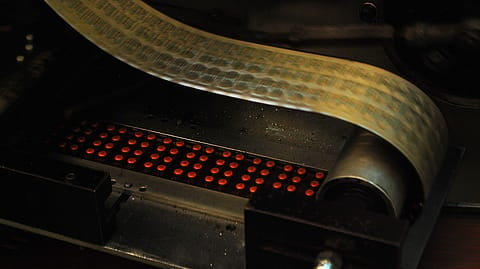Reject UK proposals on IP in FTA: Medical NGO to India
The UK's demands are seeking to gut India's patent and drug regulatory laws of the safeguards that make it a manufacturing powerhouse, says Médecins Sans Frontières.

International medical humanitarian organisation Médecins Sans Frontières (MSF) has asked India to reject the intellectual property (IP) related proposals made by the United Kingdom as part of India-UK bilateral free trade agreement negotiations. The civil society organisation's comments come after a website published a 'leaked' chapter of the UK's draft FTA text on IP matters.
"The UK's demands are seeking to gut India's patent and drug regulatory laws of the safeguards that make it a manufacturing powerhouse. India is a major supplier of many of the affordable, lifesaving generic medicines that MSF and many countries rely on to treat people with diseases like tuberculosis (TB), malaria, and HIV/AIDS. The excessive measures included in the draft IP chapter of the UK-India FTA could jeopardize this," Leena Menghaney, South Asia Head, MSF's Access Campaign, says.
According to Menghaney, introducing more and more IP hoops for generic manufacturers in India to jump through will have a chilling effect on the country's ability to supply millions of people around the world with affordable, lifesaving generic medicines. "The Indian government must reject these harmful IP provisions and demonstrate its commitment to retaining robust and sustainable production of lifesaving generic medicines at affordable prices. Given the disastrous consequences this leaked IP chapter could have on the global supply of generic medicines, the UK government should withdraw it completely. India should stay vigilant and not allow barriers to affordable medicines to be written into FTA negotiations," she says.
The leaked IP chapter suggests both parties cooperate in application procedures, obtaining and maintaining IP rights, reducing IP infringement and enforcing IP. It stipulates that both parties "shall" endeavour to cooperate in fostering international harmonisation and enforcement of IP and that both parties shall endeavour to cooperate in streamlining and simplifying the process for examination and granting of patents. MSF says that such harmonisation of enforcement provisions can harm the availability of and trade in generic medicines and affect how Indian courts can handle disputes over IP rights. "If India agrees to these clauses, the Indian judiciary will have its hands tied and will no longer be able to balance IP rights with people's right to health. This directly contradicts a country's right to place public health above IP rights," it notes.
The draft negotiating texts of proposed FTAs prepared by partner countries only reflect their negotiating positions and not the final outcome of the negotiations. The MSF opposition will allow Indian negotiators to have a closer look at the IP chapter before India and UK agree on a new FTA deal.